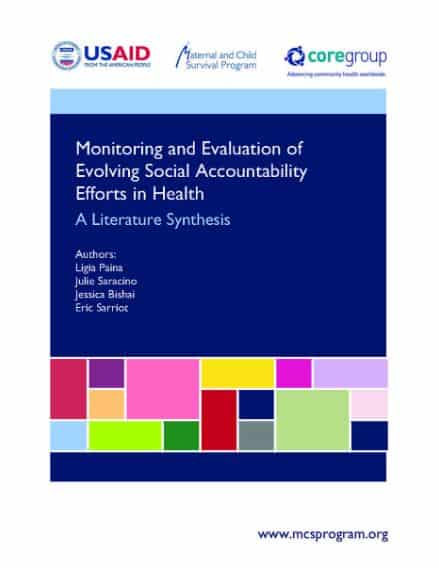 Social accountability interventions present various approaches that support citizens’ participation, direct or indirect, in dialogue with service providers and other officials with a goal of developing a collaborative relationship to improve quality of service provision. Despite recent attention on social accountability interventions, progress on updating or adapting how these interventions are monitored and evaluated has been slow. A better understanding of how social accountability interventions are monitored and evaluated can support greater collective learning on implementing and studying social accountability and such collective learning can support adaptations to social accountability interventions that are more likely to be embedded, scaled-up, and institutionalized. This literature review aims to summarize how social accountability interventions are monitored and evaluated, provide an overview of the current landscape of social accountability, and conclude with key issues related to the monitoring and evaluation of social accountability that merit further discussion and reflection.
Social accountability interventions present various approaches that support citizens’ participation, direct or indirect, in dialogue with service providers and other officials with a goal of developing a collaborative relationship to improve quality of service provision. Despite recent attention on social accountability interventions, progress on updating or adapting how these interventions are monitored and evaluated has been slow. A better understanding of how social accountability interventions are monitored and evaluated can support greater collective learning on implementing and studying social accountability and such collective learning can support adaptations to social accountability interventions that are more likely to be embedded, scaled-up, and institutionalized. This literature review aims to summarize how social accountability interventions are monitored and evaluated, provide an overview of the current landscape of social accountability, and conclude with key issues related to the monitoring and evaluation of social accountability that merit further discussion and reflection.
This resource was created in partnership with Save the Children and Johns Hopkins Bloomberg School of Public Health.
